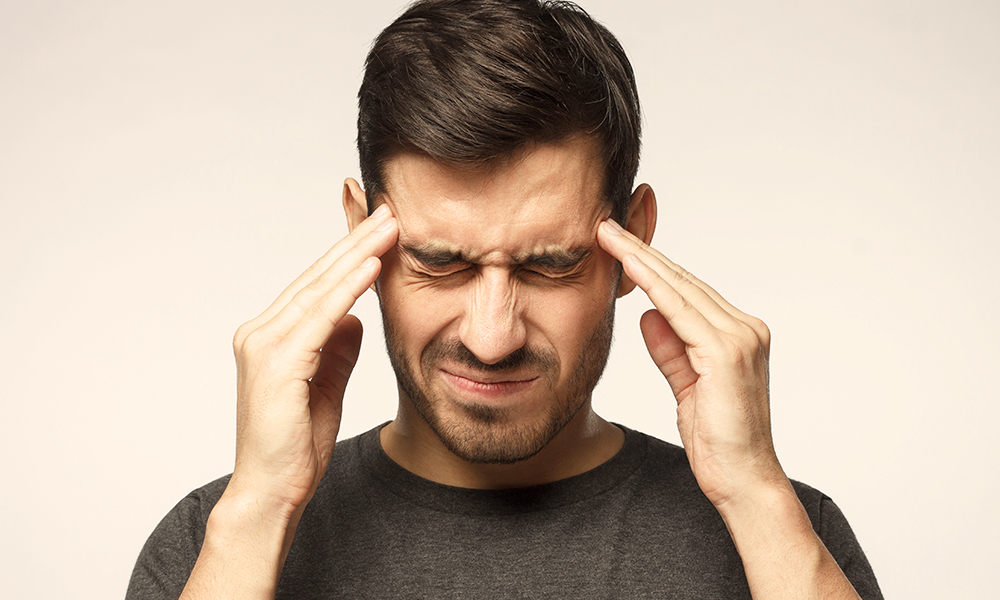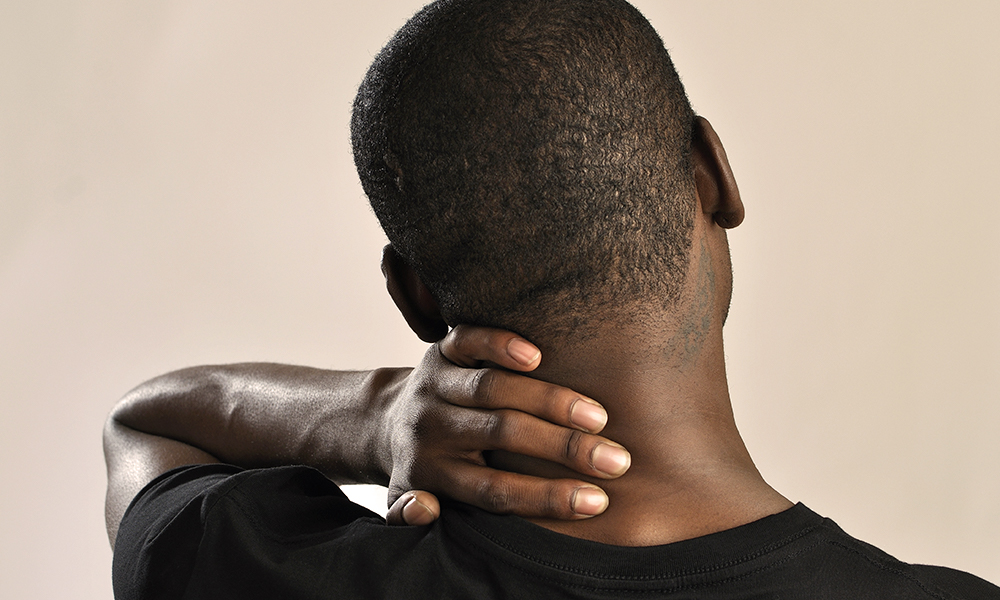
What to Do If You Have a Headache After a Car Accident (and Why You Shouldn’t Ignore It)
We’ve all experienced a headache or two, whether recovering from a great night out or dealing with the stress of our everyday lives.
We usually don’t think twice about head pain—just take an aspirin and move on.
But car accident headaches are a bit different than your typical migraine headaches. The sudden and violent jolt of a motor vehicle accident and subsequent intense headaches can signify a more serious injury or brain damage that you shouldn’t ignore.
When you’ve been injured in a car accident, you should seek medical attention immediately to receive proper treatment.
Here’s everything you need to know about headaches after a car accident and how you can potentially get compensated for medical expenses and other damages.
Are Headaches Common After a Car Accident?
Many accident victims are shocked to learn that headaches are incredibly common after a car crash. While the stress of the incident alone can be enough to trigger a headache, it’s often the force of impact from the accident that causes a head injury.
When your vehicle is struck by an object, like another moving vehicle, the impact force can cause your skull to collide with other structures inside the car, like the steering wheel or window.
This could cause severe headaches in the hours or days following the crash.

Where Does Your Head Hurt Typically After a Car Accident?
Most commonly, your head will hurt at the point of impact where your skull comes into contact with other structures inside the vehicle. For instance, if your head struck the steering wheel and your forehead took the brunt of the damage, you’ll likely feel pain and soreness there.
Alternatively, if your skull slammed against the car window, you’ll likely feel pain on the side of your head where you felt the force of impact. Headache pain localized behind the eyes or ears, nausea, or sensitivity to light and sound may indicate a migraine headache.
What Causes Headaches After A Car Accident?
Stress and force of impact are two leading causes of headaches after a car accident. However, a constant headache can signify a severe head injury, such as a concussion, or a neck injury, such as whiplash.
Due to the high sensitivity of the brain, several injuries or damage to the skull can be responsible for severe headaches. Let’s look at some of the most common culprits behind chronic headaches after a motor vehicle collision.
Traumatic Brain Injury (TBI) Headache
A traumatic brain injury (TBI) is a closed head injury caused by a blow to the head. Though there is no break in the skull itself, the force of impact causes the brain to move violently back and forth, causing bruising, bleeding, and tearing of sensitive brain tissue and blood vessels.
TBIs can range in severity with immediate or delayed symptoms, including blurry vision, double vision, and difficulty concentrating. In severe cases, a TBI can lead to bleeding within the skull, called a subdural hematoma. Also common among sports injuries, car accidents are the most likely cause of TBIs in young adults aged 15 to 24.
Post-traumatic Headache
Head pain after a car accident is commonly referred to as a “post-traumatic headache” because it’s caused by trauma from a motor vehicle crash. Those who sustain a mild traumatic brain injury or an accident-related neck injury often experience post-traumatic headaches as pain radiates up through the base of the skull and into the head.
A post-traumatic headache typically appears within hours or days of an accident. However, pain and soreness can sometimes be delayed. While not considered severe head injuries, post-traumatic headaches can cause lingering pain or changes to your sleep patterns over two to three weeks.
Post-concussion Syndrome Headache
A concussion is a type of closed brain injury that occurs when the brain is forcibly shaken inside the bony skull.
Similar to a TBI, concussion symptoms include:
- Blurred vision
- Confusion
- Headache
- Memory loss
- Ringing in the ears.
In severe cases, a concussion can cause loss of consciousness lasting a few minutes.
Post-concussion syndrome is how healthcare providers classify concussion symptoms that last beyond the expected recovery period, generally one to two weeks. Up to 20% of accident victims may have symptoms, including headaches and dizziness, that persist beyond three weeks. We refer to these headaches as post-concussion syndrome headaches.
Muscle Strain and Spasm Headaches
Your neck, head, and upper back are home to several muscles, all of which are prone to injury during a car wreck. One type of injury is a strain, where the force of a collision causes the muscles to stretch or tear. Another type of injury is a muscle spasm, which happens when there is soft tissue damage in muscle fibers.
A soft tissue injury such as a strain often results in tight muscles, creating tension and inflammation. When the neck, head, and upper back muscles are damaged or tight, pain can present as dull or constant headaches.
Symptoms of a muscle strain include:
- Reduced range of motion
- Pain performing certain movements
- Swelling
- Tenderness.

Whiplash Headache
Whiplash headaches are a type of soft tissue injury common after a rear-end collision. A whiplash injury occurs when the head rushes forward and immediately snaps back, stretching—and in severe cases, tearing—the neck muscles, tendons, and ligaments.
Symptoms of whiplash include:
- Headache at the base of the skull
- Neck pain and stiffness
- Dizziness
- Fatigue
- Difficulty concentrating
When left untreated, whiplash can become a chronic neck injury that limits the range of motion.
Fracture Headaches
A fractured skull or neck can cause constant headaches after a car accident. During an auto accident, the impact force can partially or entirely break one of the many bones in your upper body. Pain with these types of headaches is often at the back of the head and neck or localized near the injury site.
Symptoms of a skull fracture include severe pain at the trauma site and bleeding from the ears, nose, or eyes. In most cases, you will know instantly if your skull or neck has been fractured.

Why You Shouldn’t Ignore Headaches After a Car Accident
A headache after a car accident should never be ignored because it may be a symptom of a more severe injury. For instance, a headache in the base of the skull can be a sign of whiplash, which can cause chronic pain in the head and neck if left untreated.
A constant headache may also signify post-concussion syndrome, which can cause severe brain damage and long-term pain when neglected. Failing to treat a primary brain injury can cause various secondary symptoms that may have otherwise been avoided with immediate medical care.
The longer headache pain stemming from a car accident is ignored, the harder it will be to have insurance cover medical treatment and hold the at-fault driver responsible for your medical treatment. A personal injury firm will always recommend receiving medical attention immediately to protect your right to compensation.
What to Do If Your Head Hurts After a Car Accident
If you have been involved in a car accident and have lingering headaches, don’t wait to take action.
- Seek immediate medical attention. Visit a healthcare professional immediately for medical imaging, including a brain scan.
- Don’t try to grin and bear it. Do not try to shrug it off and ignore the pain.
- Follow medical treatment protocol. Adhere to all treatment guidelines as prescribed by a doctor.
- Speak with a personal injury attorney. Discover how a car accident attorney can help you recover compensation after an accident.
After an accident, emergency care can identify any present head injuries. A physical exam, blood tests, and brain function tests can identify current brain damage and any risk of chronic pain or permanent disability.
Once medical treatment is underway, a personal injury attorney can help you compile a personal injury claim for your damages, including medical expenses, lost wages, pain and suffering, and more. The faster you connect with an attorney, the quicker we can begin your claim.
Contact a Car Accident Attorney for Persistent Severe Headache Symptoms
From a mild head injury to a severe injury, any type of head trauma can cause lasting repercussions. If you weren’t at fault for the accident, you don’t deserve to be responsible for the aftermath. Contact The Miley Legal Group for a free case evaluation today. Together, we can work towards rightful compensation for your accident injuries.
Contact a Car Accident Attorney
Are you suffering from persistent headaches following a car accident?
A car accident is a traumatic event, both physically and emotionally. From a mild head injury to a severe injury, any type of head trauma can cause lasting repercussions. If you weren’t at fault for the accident, you don’t deserve to be responsible for the aftermath.
Contact Miley Legal for a free case evaluation today. Together, we can work towards rightful compensation for your accident injuries.

